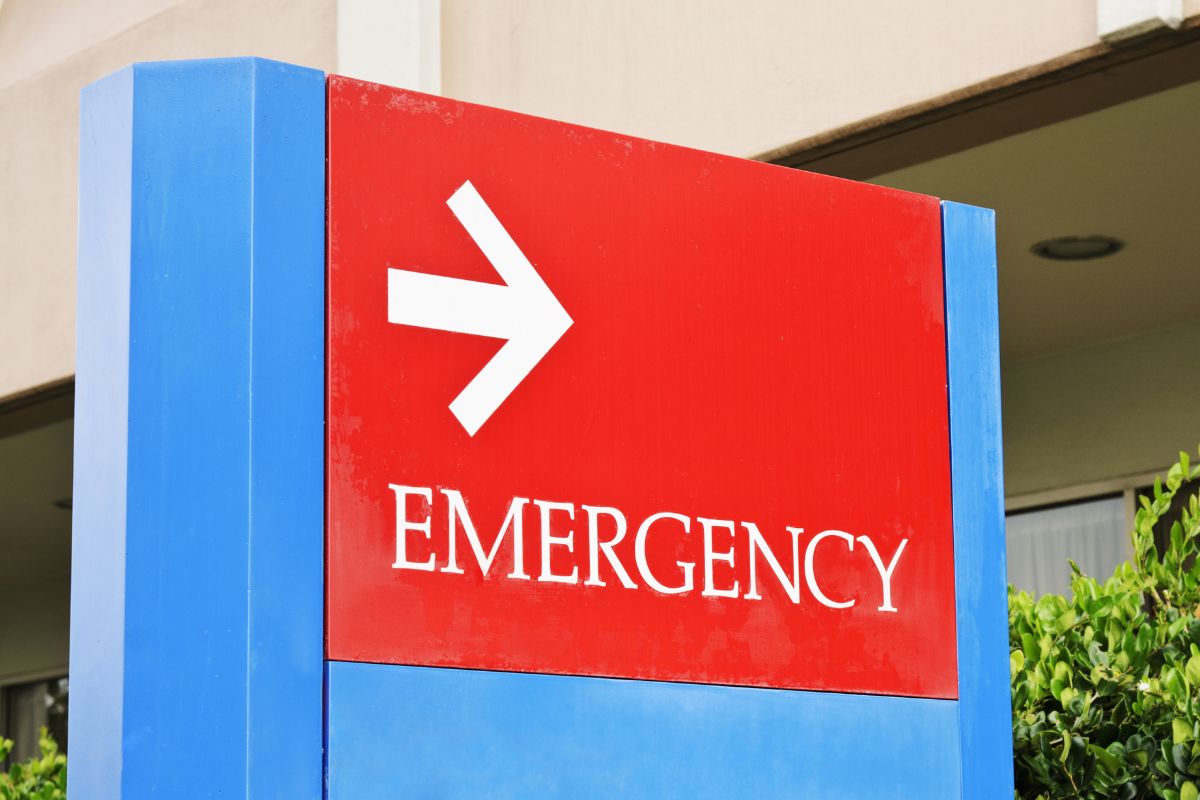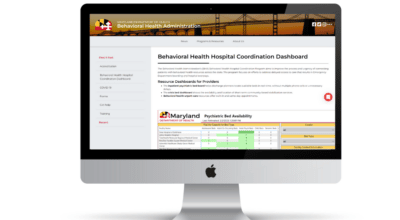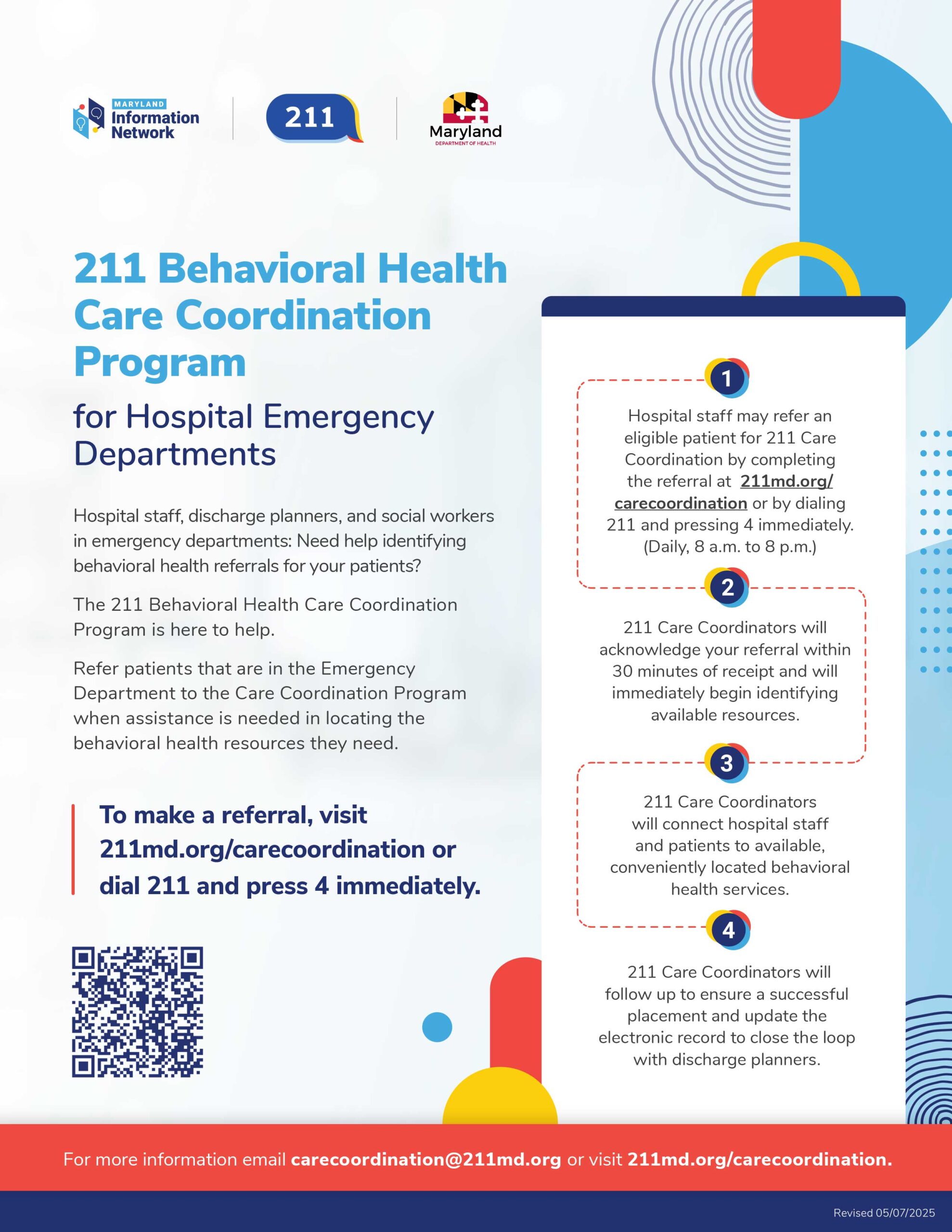How Care Coordinators Can Help
Hours: 8 a.m. - 8 p.m.
Acknowledge
Your referral will be acknowledged within 30 minutes of receipt and the care coordinator will immediately begin identifying available resources through our comprehensive resource database.
Connect
211 Care Coordinators will connect hospital staff and patients to available, conveniently located behavioral health services.
Follow-Up
We will follow-up to ensure a successful placement and update the electronic record to close the loop with discharge planners.
Read our HIPAA compliance and data security questions.

Need an Inpatient or Psychiatric Bed?
Check the Maryland Bed Board
Maryland's bed board helps discharge planners locate available psychiatric and crisis beds in real-time. Bed availability is updated three times a day.
Find the type of bed you need from the following categories:
- Adult
- Co-occurring
- Geriatric
- Adolescent
- Child
You do not need to refer a patient to the 211 Care Coordination program if a patient is being admitted from the emergency department to an inpatient bed. They can be referred after the psychiatric evaluation if more care coordination services are needed like outpatient care, additional inpatient care or community-based behavioral health services.
Case Consultation
Case Consultation provides hospitals with dedicated time to review the status of open cases and collaborate on care coordination for patients with complex needs.
These 15 to 30-minute sessions allow hospitals to:
- Discuss current cases.
- Identify potential referrals.
- Ensure patients are connected to the right community resources for continued support.
To schedule, email carecoordination@211md.org.
211 Hospital & Community Resource Network
The network brings together hospitals, state agencies and community organizations to tackle the challenges faced by patients with complex needs who are discharged from hospital settings and struggle to navigate community resources. These meetings provide a platform to strengthen partnerships, foster collaboration and develop actionable solutions to improve care coordination and patient outcomes.
Purpose of the Meetings:
- Address gaps in care for individuals transitioning from hospitals to the community.
- Share innovative ideas and best practices for supporting patients with complex needs.
- Improve access to and awareness of community resources.
- Build stronger partnerships between healthcare and community organizations.
If your hospital or organization is not yet part of this critical effort, we invite you to join the conversation. Together, we can create a more seamless and effective care system for Maryland’s most vulnerable populations.
Meetings are held the first Monday of every month.
Learn How To Use ConnectCare
Watch this video to learn how to refer patients and access the provider portal.
Frequently Asked Questions
About ConnectCare
About Emergency Department Referrals
Understanding our use of Jira for the 211 Care Coordination Patient Referral Portal
Reporting Bed Availability
Additional Resources
Preadmission Screening and Resident Review (PASRR)
Children’s Cabinet
Childrens-Cabinet-LCT-Directive-3
Pediatric Support
Maryland Behavioral Health Integration in Pediatric Primary Care (BHIPP) Support
Have a Question?
Email us: carecoordination@211md.org
Making An Impact
211 Care Coordination Powered By


